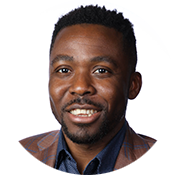Free Tuition Won’t Improve Diversity in Medical School
“To truly build a diverse physician workforce, we must focus on laying a solid foundation,” says Chris Sossou.

Earlier this year, Montefiore’s Albert Einstein College of Medicine made headlines by announcing that thanks to a large donation it would no longer charge tuition to students. It is not the first institution to make such an announcement—one that sounds like a dream come true for many would-be doctors previously burdened with hundreds of thousands of dollars in debt and one that might even the playing field to allow a wider array of underrepresented students to become physicians.
While this concept holds promise in theory, it is essential to recognize that simply eliminating tuition fees does not necessarily guarantee an adequate supply of doctors from underserved communities.
Medical schools that don’t charge tuition, including New York University and Cleveland Clinic, undoubtedly offer a valuable opportunity for aspiring doctors to pursue their education without the burden of tuition fees. But they are just one piece of the puzzle. Tuition-free medical schools remove an arguably huge financial barrier to medical education, but they do not address the underlying challenges that prevent many underrepresented minority students from even considering a career in medicine, barriers that exist way before such students even start studying for their MCATs.
To truly build a diverse physician workforce, we must focus on laying a solid foundation. This needs to start as early as high school and college, if not sooner. Many students lack the mentorship and guidance necessary to navigate the complex path to medical school. Without access to resources and support systems, even the most motivated and talented students may feel discouraged from pursuing a medical career.
As one of those students, for me growing up, basic necessities like a quiet study space, high-speed internet, healthy meals, and proper sleep were luxuries of which I could only dream. After resettling in the US as political refugee, I lived in circumstances where such comforts were out of reach, and my path to medical school seemed insurmountable. In college, the financial burden of tuition, living expenses, and family responsibilities weighed heavily on my shoulders as I balanced multiple part-time jobs while maintaining a rigorous academic schedule. Sleepless nights and exhaustion were the norm.
Affording preparation materials for the MCAT, for example, seemed impossible at times, and it wasn't until I received mentorship and support from countless selfless individuals who believed in my potential that I was able to overcome these barriers. The generosity of these people who came forward at critical stages in my development paved the way for me to become the interventional cardiologist I am today.
Efforts to increase diversity in the physician workforce must prioritize providing mentorship and guidance to underrepresented minority students from an early age. By investing in programs that offer mentorship, academic support, and resources to underprivileged students, we can empower them to pursue careers in medicine with confidence and determination. These initiatives go beyond simply addressing financial barriers–they address the systemic inequities that have historically limited access to medical education.
In applauding the efforts of tuition-free medical schools, let us not lose sight of the broader challenges that must be addressed to truly diversify the physician workforce. By focusing on building a strong foundation of mentorship and guidance for underrepresented minority students, we can create a more inclusive and equitable healthcare system for all
Chris Sossou, MD, is an interventional cardiology fellow at Morristown Medical Center (Morristown, NJ). Sossou immigrated to US in 2004…
Read Full Bio




Comments